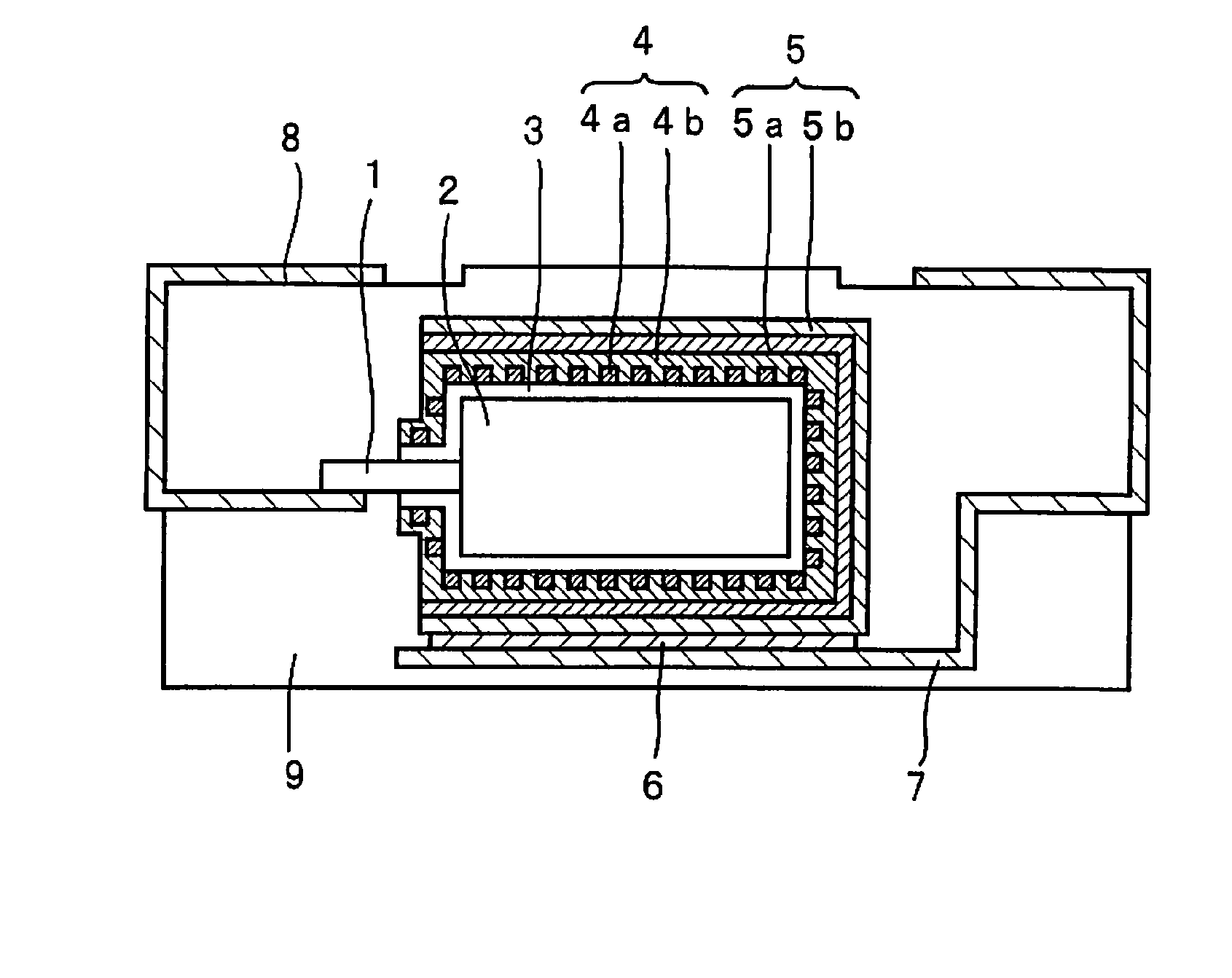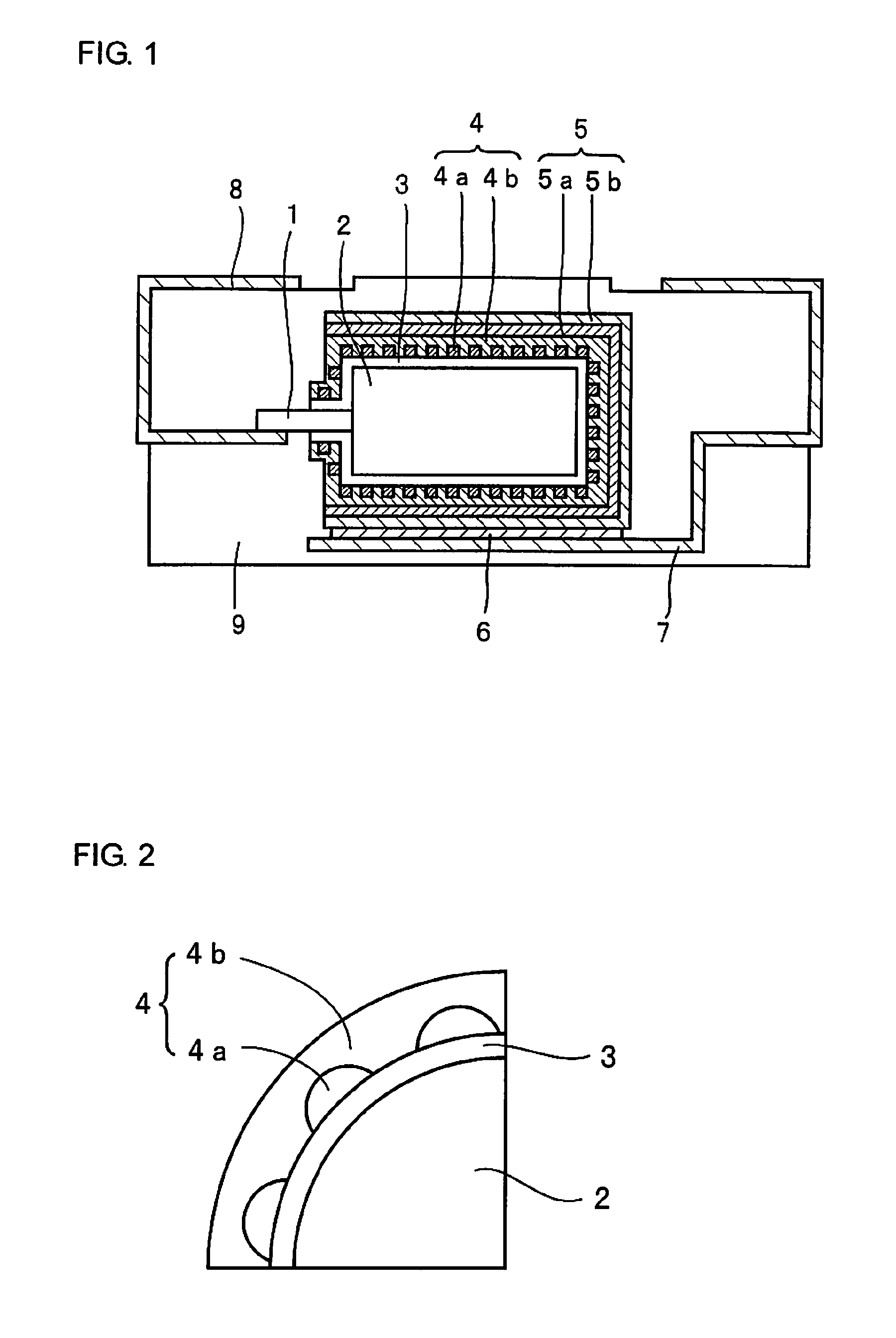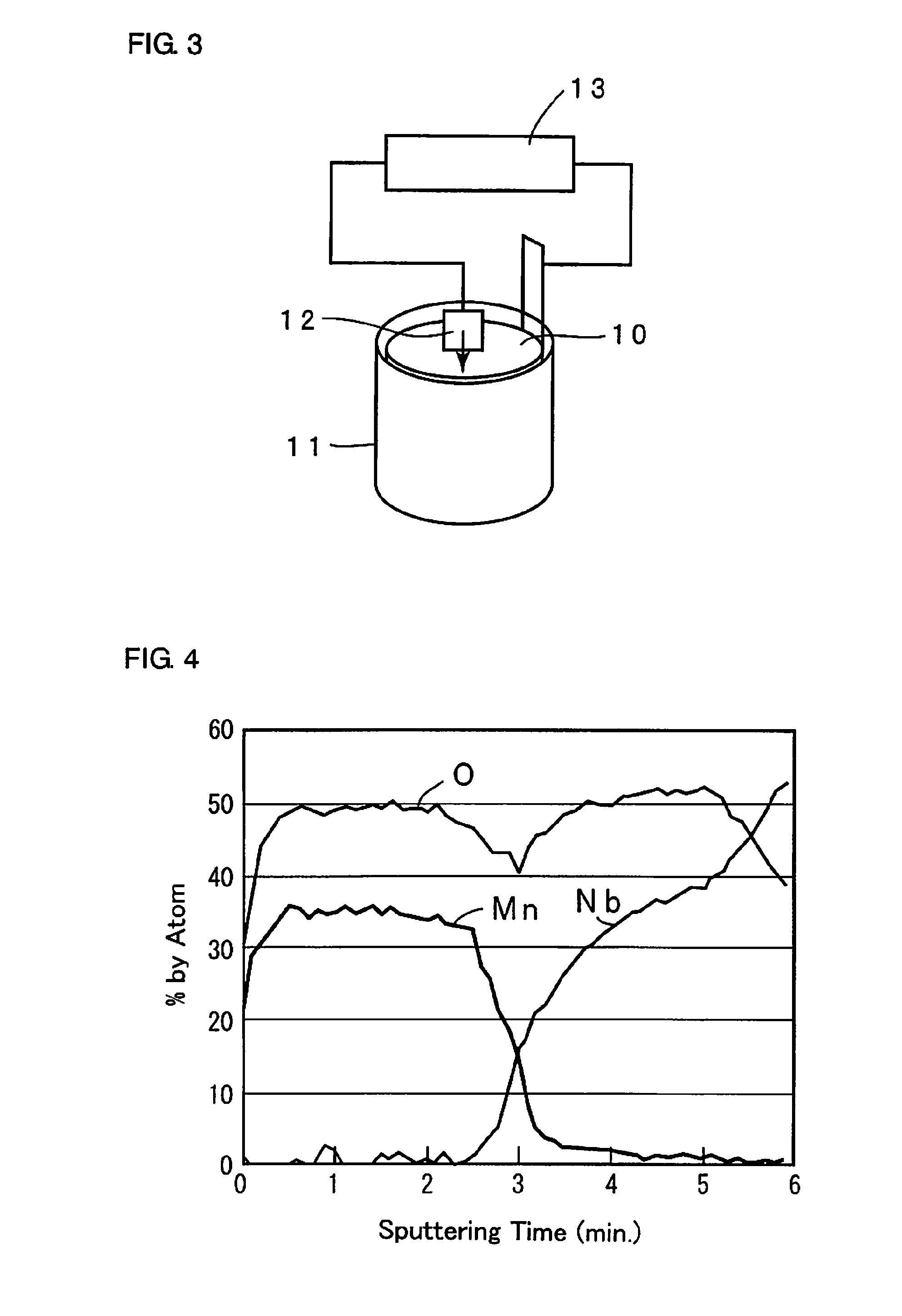Solid electrolytic capacitor and method of producing the same
- Summary
- Abstract
- Description
- Claims
- Application Information
AI Technical Summary
Benefits of technology
Problems solved by technology
Method used
Image
Examples
example 1
[0038]Step 1: A powder of niobium metal with an average particle diameter of 2 μm was sintered to form an anode 2 made of a porous sintered body in which a metal lead wire 1 of niobium is embedded. The anode 2 was anodized at a constant voltage of 10 V for 10 hours in an aqueous 0.5 wt. % phosphoric acid solution kept at 60° C. to form a dielectric layer 3 containing mainly niobium oxide on the surface of the anode 2.
[0039]Step 2: A capacitor element in which the dielectric layer 3 was formed was immersed in an aqueous oxidizing agent solution containing 20 wt. % of ferric p-toluenesulfonate for 5 minutes to react with vapor of ethylenedioxy thiophene monomer for 10 minutes and thereafter, heat treatment was carried out at 130° C. for 20 minutes to form a conductive polymer layer 4a of polyethylenedioxy thiophene like islands on the surface of the dielectric layer 3. Next, the anode 2 in which the conductive polymer layer 4a was formed is immersed in an aqueous 30 wt. % manganese ni...
example 2
[0043]In this Example, a solid electrolytic capacitor was produced in the same manner as in Example 1, except that the conductive polymer layer 4a was formed using polypyrrole. Practically, after the dielectric layer 3 was formed in the step 1 of Example 1, it was immersed in an aqueous oxidizing solution containing 20 wt. % of ferric p-toluenesulfonate for 5 minutes to react with vapor of pyrrole monomer for 10 minutes to form a conductive polymer layer 4a of polypyrrole like islands on the surface of the dielectric layer 3. Besides that, the solid electrolytic capacitor was produced in the same manner as in Example 1.
examples 3 to 9
[0058]Herein, the relations of the coating ratio of the conductive polymer layer with ESR and storage characteristics were investigated.
[0059]Solid electrolytic capacitors of Examples 3 to 9 were produced in the same manner as in Example 1, except that immersion in an oxidizer containing 20 wt. % of ferric p-toluenesulfonate was carried out and reaction time (polymerization duration) with vapor of ethylenedioxy thiophene pyrrole monomer was changed to be 1 minute, 2 minutes, 5 minutes, 10 minutes, 15 minutes, 40 minutes, 90 minutes, and 120 minutes in the step 2 in Example 1.
[0060]As be described above, ESR and the capacity retention ratio in storage characteristics were measured. The measurement results are shown in Table 2.
TABLE 2Polymerization TimeCoating RatioThickness ofCapacityfor Conductiveof ConductiveManganeseRetention RatioPolymer LayerPolymer LayerDioxide Layerin Storage(min.)(%)(nm)ESRCharacteristicsEx. 31230200105Ex. 42330125100Ex. 551030110105Ex. 1102030100100Ex. 61530...
PUM
| Property | Measurement | Unit |
|---|---|---|
| Fraction | aaaaa | aaaaa |
| Thickness | aaaaa | aaaaa |
| Electrical conductor | aaaaa | aaaaa |
Abstract
Description
Claims
Application Information
 Login to View More
Login to View More - R&D
- Intellectual Property
- Life Sciences
- Materials
- Tech Scout
- Unparalleled Data Quality
- Higher Quality Content
- 60% Fewer Hallucinations
Browse by: Latest US Patents, China's latest patents, Technical Efficacy Thesaurus, Application Domain, Technology Topic, Popular Technical Reports.
© 2025 PatSnap. All rights reserved.Legal|Privacy policy|Modern Slavery Act Transparency Statement|Sitemap|About US| Contact US: help@patsnap.com



